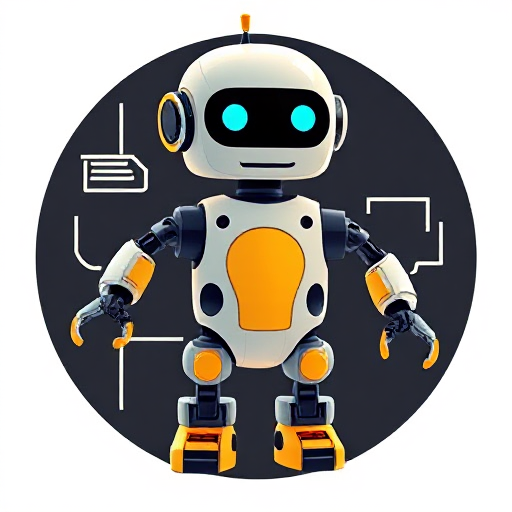
Machine learning (ML) has emerged as one of the most sought-after skills in today’s technology-driven world. Whether you’re aiming to start a career in artificial intelligence, enhance your data science expertise, or simply explore a new field, learning machine learning can open doors to countless opportunities. Thankfully, there is a wealth of resources online for learners at all levels. This article outlines some of the best platforms and resources to learn machine learning online, categorized by different types of learners and goals.
1. Comprehensive Online Learning Platforms
a. Coursera
Coursera offers high-quality courses from top universities and institutions worldwide. Popular machine learning courses include:
- Machine Learning by Stanford University (Andrew Ng): A beginner-friendly course that covers the fundamentals of machine learning algorithms, supervised and unsupervised learning, and practical applications.
- Deep Learning Specialization by DeepLearning.AI: A series of courses focused on deep learning, neural networks, and real-world applications like image and speech recognition.
Features:
- Offers certificates upon completion.
- Flexible schedules with a mix of video lectures, quizzes, and projects.
- Free to audit, with optional paid features.
b. edX
edX provides courses from institutions like MIT, Harvard, and Microsoft. Examples include:
- Introduction to Machine Learning by MIT: A deep dive into the mathematical foundations of machine learning.
- AI and Machine Learning for Business by Columbia University: Focused on business applications of AI and ML.
Features:
- Access to university-level content.
- Option to earn professional certificates or degrees.
c. Udemy
Udemy offers a wide range of affordable machine learning courses. Notable options include:
- Python for Data Science and Machine Learning Bootcamp by Jose Portilla: Comprehensive and hands-on.
- Machine Learning A-Z: Hands-On Python & R In Data Science: Practical lessons for beginners.
Features:
- Lifetime access to purchased courses.
- Frequent discounts make courses affordable.
2. Specialized Platforms for AI and Machine Learning
a. DataCamp
Focused on data science and analytics, DataCamp offers interactive coding exercises and real-world projects. Key courses include:
- Machine Learning for Everyone: An introductory course.
- Machine Learning Scientist Career Track: A guided path for aspiring ML scientists.
Features:
- Hands-on coding in a browser-based environment.
- Gamified learning experience with progress tracking.
b. Fast.ai
Fast.ai provides practical, cutting-edge deep learning courses. Its flagship course, Practical Deep Learning for Coders, is ideal for those with basic Python knowledge.
Features:
- Free and open-source.
- Community forums for support.
- Focus on coding and real-world applications.
3. Open Educational Resources and MOOCs
a. Google’s Machine Learning Crash Course (MLCC)
This free course covers key ML concepts and TensorFlow usage.
Features:
- Interactive lessons and coding exercises.
- Ideal for beginners with basic programming knowledge.
b. Kaggle Learn
Kaggle, a platform for data science competitions, offers bite-sized ML tutorials:
- Intro to Machine Learning.
- Intermediate Machine Learning: Focused on advanced topics like feature engineering.
Features:
- Free access.
- Practice coding in Jupyter Notebooks.
c. MIT OpenCourseWare
MIT’s free online courses include Introduction to Computational Thinking and Data Science, which integrates machine learning concepts with computational modeling.
4. Coding Platforms with ML Libraries
a. Codecademy
Codecademy’s ML courses are beginner-friendly, focusing on Python libraries like scikit-learn and TensorFlow.
Features:
- Interactive coding interface.
- Real-time feedback.
b. GitHub Repositories
Many developers share ML learning materials on GitHub. Popular repositories include:
- TensorFlow and PyTorch tutorials.
- Open datasets for practice projects.
5. Community and Peer-Learning Platforms
a. Reddit and Subreddits
Communities like r/MachineLearning and r/learnmachinelearning offer discussions, resources, and advice for learners.
b. Discord and Slack Groups
Joining machine learning-focused groups provides access to real-time discussions, mentorship, and peer support.
6. YouTube Channels and Free Video Content
a. YouTube Educators
- Sentdex: Practical ML tutorials with Python.
- StatQuest with Josh Starmer: Simplifies complex ML concepts.
- Lex Fridman: Interviews and discussions on AI and ML advancements.
b. Conferences and Talks
Platforms like YouTube host talks from conferences like NeurIPS and ICML, offering insights into cutting-edge research.
7. Books and Supplementary Resources
- “Hands-On Machine Learning with Scikit-Learn, Keras, and TensorFlow” by Aurélien Géron: A practical guide for all levels.
- “Deep Learning” by Ian Goodfellow, Yoshua Bengio, and Aaron Courville: A comprehensive academic resource.
- “Pattern Recognition and Machine Learning” by Christopher Bishop: Focuses on probabilistic models.
Choosing the Right Platform
To select the best learning resource, consider the following:
- Skill Level: Beginners may benefit from structured courses like Coursera’s Machine Learning, while advanced learners can explore Fast.ai or GitHub repositories.
- Learning Style: Interactive platforms like DataCamp or Codecademy are ideal for hands-on learners.
- Career Goals: If aiming for a professional certificate or degree, platforms like edX and Coursera are excellent.
- Budget: Free resources like Google MLCC and Kaggle Learn are perfect for learners on a budget.
Machine learning is a rapidly evolving field, and continuous learning is key. With the vast array of resources available online, there’s never been a better time to start your journey into machine learning. Choose the platform that best aligns with your goals and dive in!






